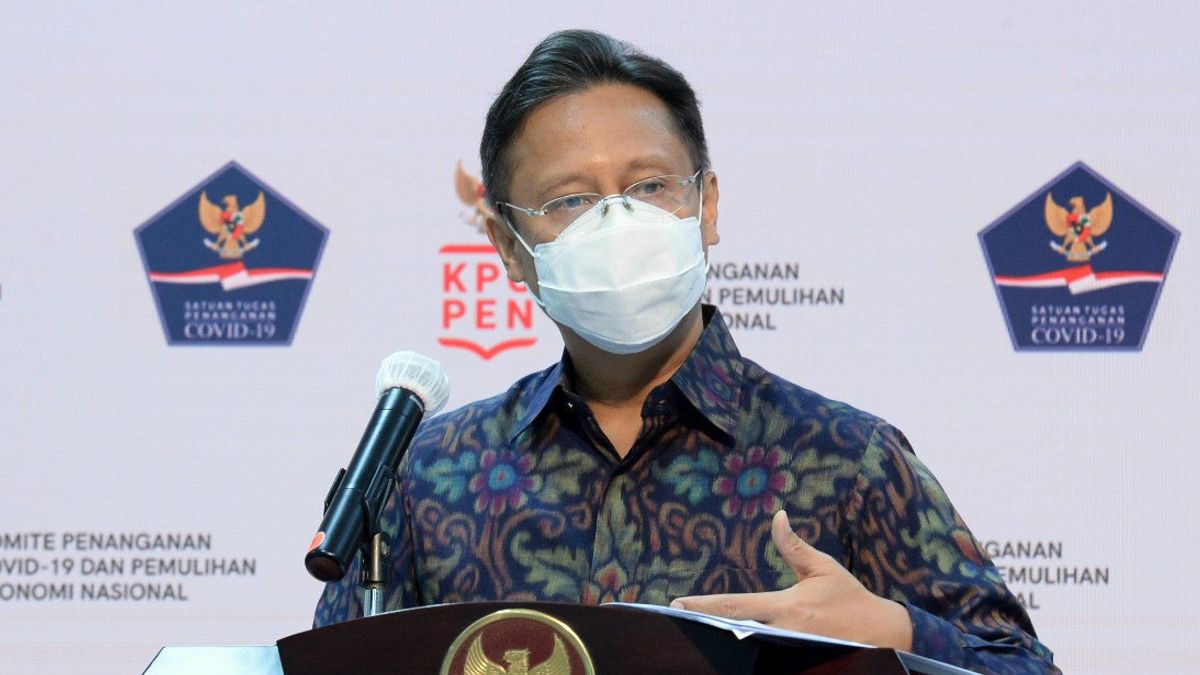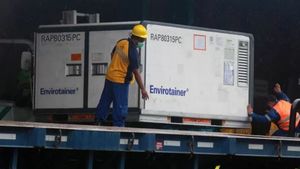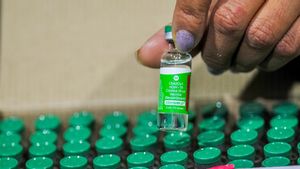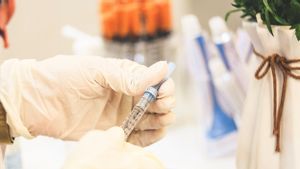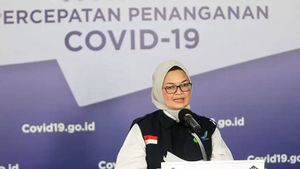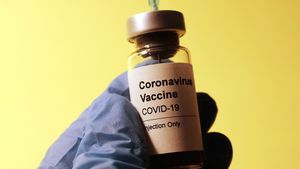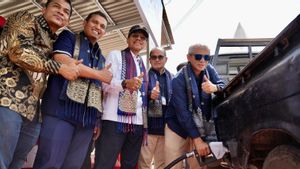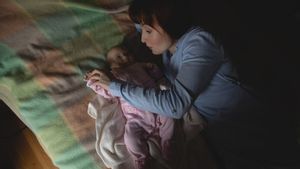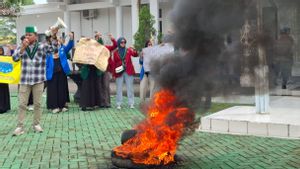JAKARTA - Health Minister Budi Gunadi Sadikin explained the reasons for Indonesia to buy the COVID-19 vaccine in many countries, one of which is the concern that the vaccine-producing countries are holding back sales or embargoes.
This statement was conveyed by the Minister of Health after reviewing the implementation of mass vaccination which was attended by around a thousand people at the Health Polytechnic Campus of the Bengkulu Province Health Ministry, Thursday, March 11.
"We are afraid if there is anything or there is an embargo from a country and this has already happened. AstraZeneca is produced by Britain and now they are detaining it. Yesterday they wanted to send it to Australia but they said they detained it for their people first", said Budi, quoted from Antara.
Budi said Indonesia was fortunate not to buy AstraZeneca vaccines from the UK but to buy vaccines of this type from South Korea and India.
Currently, said Budi, Indonesia is collaborating with five countries providing the COVID-19 vaccine, namely China, the producer of the SinoVac vaccine, South Korea and the UK for the AstraZeneca vaccine, Germany for the Pfizer vaccine, and the United States for the Novavax vaccine.
Specifically for the AstraZeneca vaccine made in South Korea and India, now 1 million of 11 million doses have arrived in Indonesia. The vaccine is a multilateral collaboration with WHO for developing countries.
"America has a vaccine, named Johnson and Johnson (J&J) which only inject one time and that cannot leave the country. This vaccine is a huge grab. Why do we choose four because if one is troubled, we still have other places", he explained.
The Minister of Health said that the supply of vaccines in Indonesia until next June is estimated to have only reached 80 to 90 million doses or around 24 percent of the total need, namely 363 million vaccinations targeting 181.5 million people.
Meanwhile, the largest supply, which is estimated to reach 75 to 76 percent, will take place from July to December 2021.
According to him, the limited availability of vaccines has made the government have to try hard to arrange the schedule for the vaccination to be carried out in stages so that vaccination activities will not stop.
"Many say other countries can inject one million per day. I say if we are also one million per day, for three days what to do for the next three days, then what to do next", he said.
Budi explained that the government is targeting an increase in the number of daily vaccinations from last February to only around 100 thousand vaccinations per day and from March to April it is increased to 500 thousand vaccinations per day.
SEE ALSO:
Then in May and June, it is targeted to reach one million vaccinations per day, then after that, from July to December, it can reach more than one million vaccinations per day.
Previously, The House of Representatives (DPR) Commission X was surprised that the Food Drug Supervisory Agency (BPOM) made it difficult for the permit to develop a domestically made Nusantara vaccine which was initiated by a former Health Minister Terawan Agus Putranto. In fact, the BPOM has just given an emergency permit to use the AstraZeneca vaccine from England.
The difficulty of granting the Approval for the Implementation of Clinical Trials (PPUK) for the II BPOM clinical trials to the Nusantara vaccine candidates, angered the DPR.
Member of Commission IX of the DPR Saleh Partaonan Daulay then asked BPOM to stop the issuance of emergency use permits (EUA) for all vaccine brands produced by foreign pharmaceutical companies. He considered that the BPOM was inconsistent in granting permission to use vaccines.
"I ask that every vaccine that comes to the country has the same protocol. Please don't use AstraZeneca first. If necessary, just throw it away and then send it home, even though it's a free vaccine. Because the protocol is not the same as Sinovac", said Saleh at the Meeting at the Parliament Complex, Senayan, Jakarta, Wednesday 10 March.
Saleh then highlighted the AstraZeneca vaccine which was not through clinical trials in Indonesia but was successfully passed domestically. Meanwhile, homemade vaccines, such as the Nusantara vaccines, tend to difficult to be licensed.
In fact, according to Saleh, clinical trials with overseas populations do not guarantee that it will be suitable and safe to use for the Indonesian population.
"This is the turn for the Nusantara vaccines, why should this be like this, while when foreign vaccines arrive in Indonesia, EUA is entrusted to other countries", he said sarcastically.
The English, Chinese, Japanese, Arabic, and French versions are automatically generated by the AI. So there may still be inaccuracies in translating, please always see Indonesian as our main language. (system supported by DigitalSiber.id)
